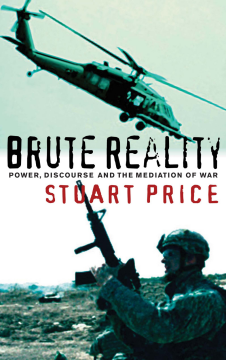
Additional Information
Book Details
Abstract
Brute Reality provides an authoritative analysis of those formal attempts, made by prominent social actors, to present a rationale for the existence and exercise of coercive power. The 'War on Terror' and its associated campaigns are presented as an aggressive attempt to assert the contradictory interests of a trans-national elite.
The period chosen to illustrate the key characteristics of this enterprise, extends from the state of 'war' created after the September 11th attacks, to the strategic adjustments begun during the nadir of the Iraq adventure; it also includes reference to the modifications in policy carried out under the auspices of the Obama Presidency. The book provides a critical insight into a number of influential structures that have helped to shape contemporary attitudes to warfare, and contains a wealth of transcripts and media sources, from Channel Four's coverage of September 11th, to the rhetorical pronouncements of leading politicians.
Brute Reality represents a significant addition to the existing literature on representations of the 'War on Terror' in the mass media, and will have a strong appeal to keen students of media, communication, cultural and American studies.
'An original, incisive and elegantly written analysis of contemporary warfare, rhetoric and power'
Karen Ross, Professor of Media and Public Communication, University of Liverpool
'Dismantles the myths of the war on terror and demonstrates how the rhetoric of terror provides a pretext for the consolidation of state security and the expansion of military power'
Stephen Morton, University of Southampton
Table of Contents
| Section Title | Page | Action | Price |
|---|---|---|---|
| Cover | Cover | ||
| Contents | vii | ||
| List of Illustrations | viii | ||
| Acknowledgements | ix | ||
| Introduction: The Composition of the ‘Terror War’ | 1 | ||
| 1. From the ‘War on Terror’ to ‘Overseas Contingency Operations’ | 20 | ||
| 2. War, Terror and the Real | 48 | ||
| 3. Media and the Reproduction of Meaning | 73 | ||
| 4. Surveillance, Authority and Linguistic Categories | 100 | ||
| 5. Film, Bureaucracy and the Gendered Protagonist | 123 | ||
| 6. Economic Transformation, Protestand the State | 148 | ||
| Conclusion: Democracy and the Terror War | 173 | ||
| Notes | 189 | ||
| Bibliography | 200 | ||
| Index | 216 |
